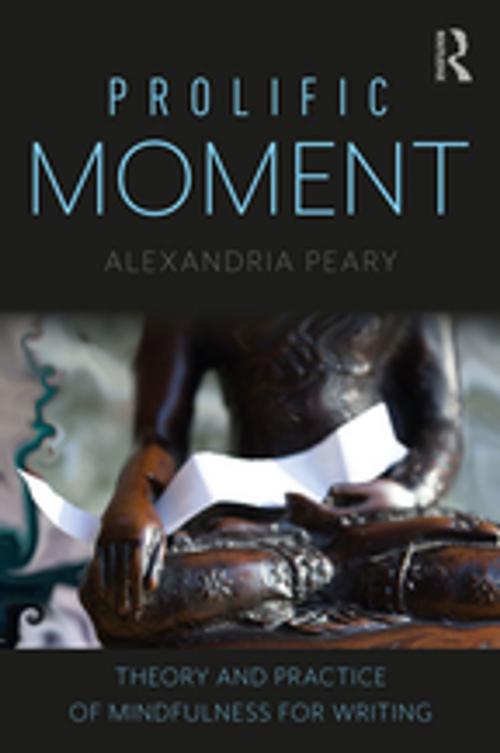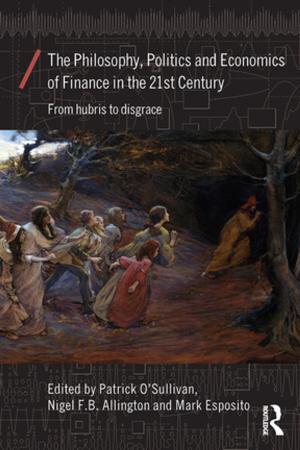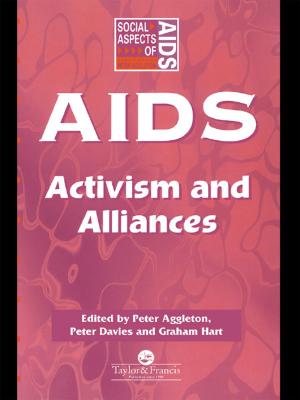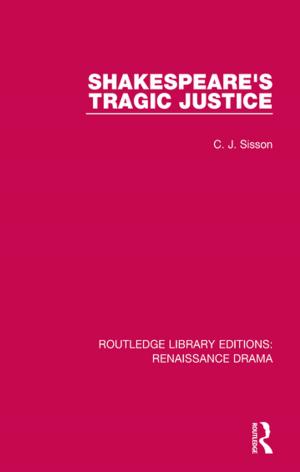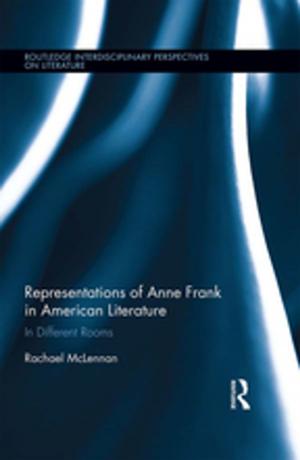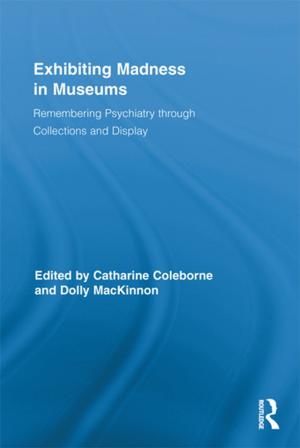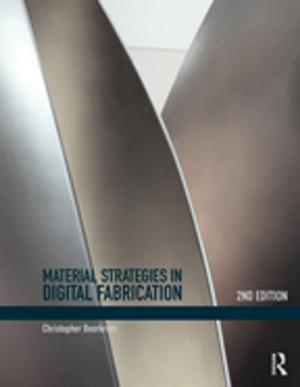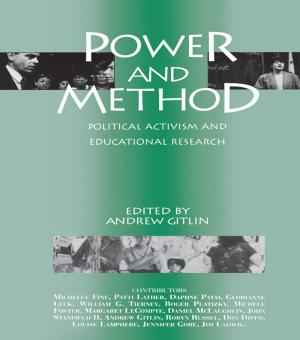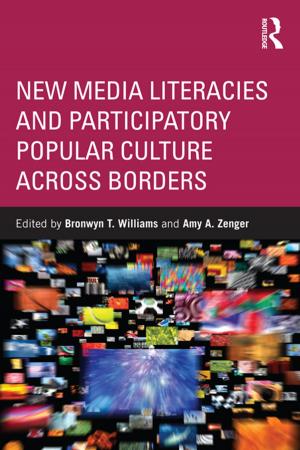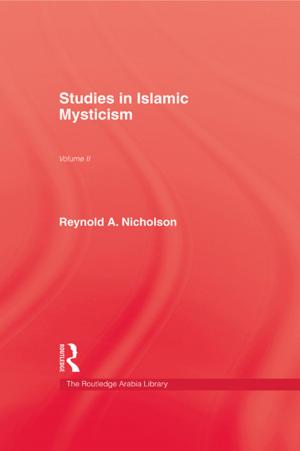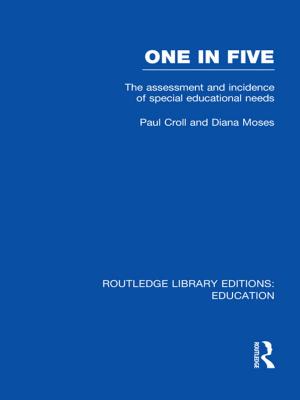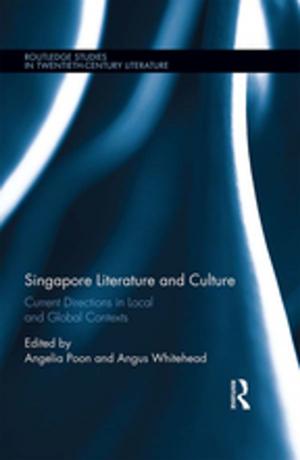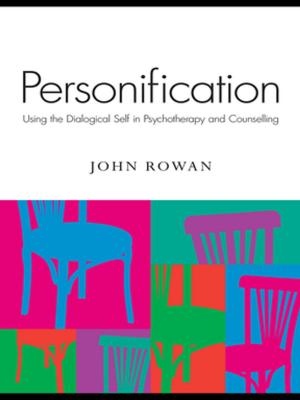Prolific Moment
Theory and Practice of Mindfulness for Writing
Nonfiction, Reference & Language, Language Arts, Writing & Publishing, Composition & Creative Writing| Author: | Alexandria Peary | ISBN: | 9781351027649 |
| Publisher: | Taylor and Francis | Publication: | June 14, 2018 |
| Imprint: | Routledge | Language: | English |
| Author: | Alexandria Peary |
| ISBN: | 9781351027649 |
| Publisher: | Taylor and Francis |
| Publication: | June 14, 2018 |
| Imprint: | Routledge |
| Language: | English |
Prolific Moment: Theory and Practice of Mindfulness for Writing foregrounds the present in all activities of composing, offering a new perspective on the rhetorical situation and the writing process. A focus on the present casts light on standard writing components—audience, invention, and revision—while bringing forth often overlooked nuances of the writing experience—intrapersonal rhetoric, the preverbal, and preconception. This pedagogy of mindful writing can alleviate the suffering of writing blocks that comes from mindless, future-oriented rhetorics. Much is lost with a misplaced present moment because students forfeit rewarding writing experiences for stress, frustration, boredom, fear, and shortchanged invention. Writing becomes a very different experience if students think of it more consistently as part of a discrete now. Peary examines mindfulness as a metacognitive practice and turns to foundational Buddhist concepts of no-self, emptiness, impermanence, and detachment for methods for observing the moment in the writing classroom. This volume is a fantastic resource for future and current instructors and scholars of composition, rhetoric, and writing studies.
Prolific Moment: Theory and Practice of Mindfulness for Writing foregrounds the present in all activities of composing, offering a new perspective on the rhetorical situation and the writing process. A focus on the present casts light on standard writing components—audience, invention, and revision—while bringing forth often overlooked nuances of the writing experience—intrapersonal rhetoric, the preverbal, and preconception. This pedagogy of mindful writing can alleviate the suffering of writing blocks that comes from mindless, future-oriented rhetorics. Much is lost with a misplaced present moment because students forfeit rewarding writing experiences for stress, frustration, boredom, fear, and shortchanged invention. Writing becomes a very different experience if students think of it more consistently as part of a discrete now. Peary examines mindfulness as a metacognitive practice and turns to foundational Buddhist concepts of no-self, emptiness, impermanence, and detachment for methods for observing the moment in the writing classroom. This volume is a fantastic resource for future and current instructors and scholars of composition, rhetoric, and writing studies.
